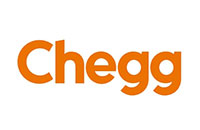Those of us on a mission to improve educational outcomes have evolved to take advantage of new technologies as well as new realities to help solve the biggest pain points that students face. As we lean further on technology to support the global student population, we also are aware that it opens us — and our entire ecosystem — up to the potential risk of patent infringement lawsuits, most notably from patent assertion entities (or PAEs, which are sometimes referred to as “patent trolls”).
Patent Troll Problem
Patent assertion entities are companies whose entire business model is to secure patents in order to sue other companies for infringement. By one estimate, PAEs are responsible for more than 90% of US high-tech patent litigation. Operating companies spend billions each year litigating and settling with such entities.
During the height of the pandemic, a PAE acquired a few patents related to touchscreen technology, which in turn filed a couple of cases, that combined, covered more than 90 percent of smartphones and tablets, as well as touchscreen laptops using that technology. The Ireland-based PAE asked the U.S. International Trade Commission to remove these devices from the United States. Imagine the havoc this could wreak on our lives if this PAE were successful; imagine how student learning would change instantly.
PAEs are a serious threat to the technology that enables student learning, and certainly an issue that Chegg takes very seriously.
Patent Strategy
When it comes to patent assertions, the best defense is a good offense — and this applies to patent strategies as well. Whether a company has one patent or many, taking stock of its portfolio is the first-step in having a strategy in place. Understanding what separates your intellectual property (IP) from your competitors will give you an advantage should you be faced with the threat of litigation from a PAE.
Companies should also consider filing patents in order to protect their innovations and their IP. Working with experienced patent attorneys can help an organization navigate the patent system as well as provide strategic planning for their portfolio.
Another protective measure is a low-cost one that can save millions on litigation. Companies who are looking to immunize themselves from the threat of a patent infringement case might consider joining a defensive organization — which for us meant joining LOT Network.
LOT Network is a non-profit community whose membership ranges from global brands to tech startups in more than 50 countries. All LOT Network members agree that if — and only if — a member’s assets fall into the hands of a PAE, they will grant a license to all other members — thus rendering them immune from PAE litigation using those assets. All traditional uses of patents, such as selling them or using them to sue other companies, are retained by each individual member. With our membership in LOT, we’re now protected against a pool of over 3.1 million patents assets — which includes 15% of all U.S. patents — from falling into the hands of patent trolls.
Another important aspect to joining LOT Network is the value it brings to our research and development teams. As Chegg continues to develop new and innovative learning tools, we want to invite the brightest minds from around the world to join our community of engineers, designers, data scientists, and more. One recruiting tool that is important to us is showing our team that their innovations will be protected under the LOT agreement and they won’t spend unnecessary time fighting off PAEs — which can be a drain on time, budgets, and most importantly, innovative thinking.
Protecting an Entire Ecosystem
Today’s global educational system needs more innovative ideas to help students from all walks of life learn and grow. When companies like Chegg are forced to focus their attention on baseless patent infringement claims, it’s the end-user who will end up feeling the pain points by having fewer tools available online or in the classroom.
If students have less access to technology or learning tools because those resources are tied up in baseless litigation, it can have a detrimental impact on the entire educational system. We believe that by putting protective measures in place — like joining a non-profit community of like-minded companies all working collaboratively to protect innovations — then we can continue to help students all over the world save time, save money, and get smarter in order to improve their overall return on educational investment.
# # #
 Kavita Aggarwal is Associate General Counsel, Intellectual Property, at Chegg, Inc. in Santa Clara, California. She has responsibility for product counseling, product transactional support, IP strategy (patents, trademarks, and copyright strategy), and commercial matters. Before joining Chegg, Ms. Aggarwal was the Director of IP at Quotient Technology Inc. She has also worked in-house as patent counsel at Rambus Inc. and as a patent prosecution and patent strategy associate at the law firm of Morgan, Lewis and Bockius. Ms. Aggarwal holds a JD and B.Sc. in Electrical Engineering from UCLA.
Kavita Aggarwal is Associate General Counsel, Intellectual Property, at Chegg, Inc. in Santa Clara, California. She has responsibility for product counseling, product transactional support, IP strategy (patents, trademarks, and copyright strategy), and commercial matters. Before joining Chegg, Ms. Aggarwal was the Director of IP at Quotient Technology Inc. She has also worked in-house as patent counsel at Rambus Inc. and as a patent prosecution and patent strategy associate at the law firm of Morgan, Lewis and Bockius. Ms. Aggarwal holds a JD and B.Sc. in Electrical Engineering from UCLA.



